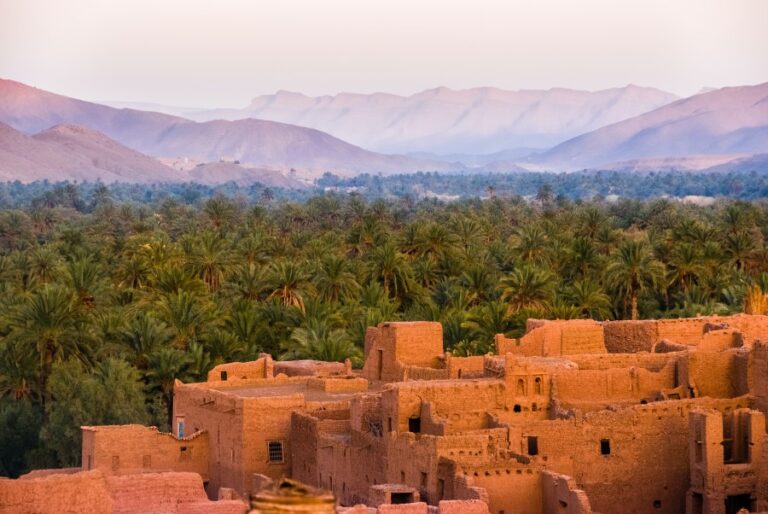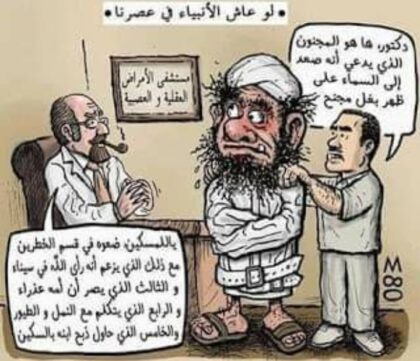

Published on 28 July 2020 in Blasphemy news
Moroccan authorities should quash the conviction of man charged with insulting Islam
On 14 July 2020, the Court of First Instance and Appeals of Safi upheld the conviction and six-month prison sentence handed down to Mohammad Awatif Kachchach in connection with a caricature that he had posted on Facebook that was deemed to have insulted Islam under Article 267(5) of the Criminal Code.
Responding to the news, the End Blasphemy Coalition said:
“International human rights instruments have made perfectly clear that the criminalisation of blasphemy can never be justified; in fact, they violate the human rights of those who are charged with an offence. We call on the Moroccan authorities to repeal any legislation that criminalises blasphemy, and to quash the conviction and sentence of Mohammad Awatif Kachchach.”
Mohammad Awatif Kachchach, an employee for the Youssoufia city council, was arrested on 24 May 2020 after he shared a cartoon that suggested that if the Prophet Muhammad had claimed to be god’s messenger today, he would have been sent to a psychiatric facility. His conviction was upheld on appeal on 14 July, and sentenced to six-months in prison and a fine of 3,000 dirhams (approx. US$327). He is currently imprisoned in Safi prison.
Mohammad Awatif Kachchach’s legal representative, Abdelwahed Birzouk, stated:
“The Moroccan constitution of 2011 gave great importance to human rights. Unfortunately there are chapters in the criminal code which limit these rights. Such as article 267(5) which clearly restricts freedom of belief and thought to the point of criminalizing them”

Cartoon shared on social media by Mohammad Awatif Kachchach
The full text of the cartoon reads:
“If the prophets lived in our time:“
The man: “Doctor, here is the madman who claims to ascend to heaven on the back of a winged mule.”
The Doctor: “Oh poor man, put him in the division of the dangerous, with he who claims to have seen God in Sinai, and the one who insists that his mother is a virgin, and the fourth who speaks with ants and birds and the fifth who tried to slaughter his son with the knife.”
According to Birzouk, the caricature was brought to the attention of the juridical police by a committee within the Moroccan General Directorate for Territorial Surveillance (DST).
Introduced in 2016, Article 267(5) of the Moroccan Criminal Code mandates that anyone “who offends the Islamic religion or the monarchy, or incites territorial integrity” face a sentence of between six months to two years’ imprisonment from six months to two years and/or a fine of up to 200,000 dirhams.
Moroccan-Swiss secular activist and Humanists International representative at the UN, Kacem El Ghazzali also commented on the case:
“I would like to remind the Moroccan government that after the Arab Spring and the 2011 Constitution, many Moroccans were confident that Morocco had embarked on a new path to work progressively to guarantee freedom of expression. Yet, we continue to monitor how the Islamic government has violated the constitution by introducing laws that criminalize freedom of thought and expression, such as article 267(5).”
In 2019, Morocco ranked 182 of 197 countries reviewed in Humanists International’s Freedom of Thought Report. The constitution declares that “Islam is the religion of the State” (Article 3), and that Morocco “commits itself […] to deepen the bonds of togetherness with the Arabo-Islamic Ummah” (Preamble). It also refers to Islam, as well as monarchy, as one of the “federative constants” of the Nation (Article 1). The King is considered as a direct descendant of the prophet of Islam, which gives the ruling Alaouite dynasty its legitimacy. The constitution (Article 41) designates the King as Commander of the Faithful, he is mandated to ensure the respect of Islam. He presides over the Superior Council of the “Ulemas” (religious scholars), which is the sole official instance entitled issue “religious consultations” (Fatwas).
While the new constitution guarantees for all “the free exercise of beliefs” (Article 3) and “The freedoms of thought, of opinion and of expression under all their forms” (Article 25), in practice there are significant limitations, such as persecution of the Baha’is since the 1960s, and more recently Christians, and Shiites, as well as the non-religious. Several articles within the penal code unduly restrict the exercise of the rights to freedom of expression and freedom of religion or belief.
The End Blasphemy Laws Coalition believes that Mohammad Awatif Kachchach is being targeted solely for the peaceful exercise of his right to freedom of expression and calls on the Moroccan authorities to quash his sentence and release him immediately and unconditionally.